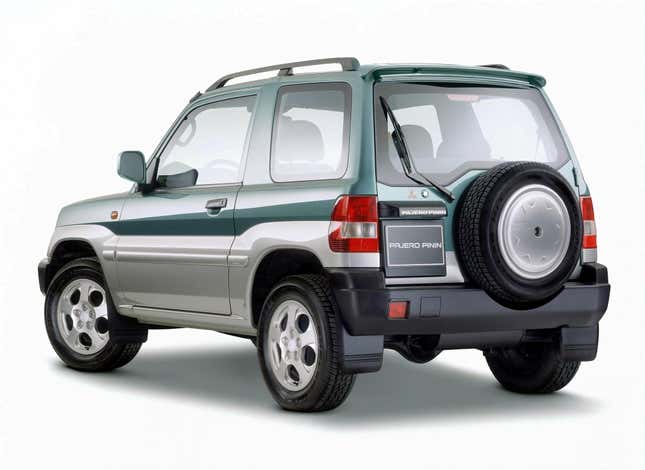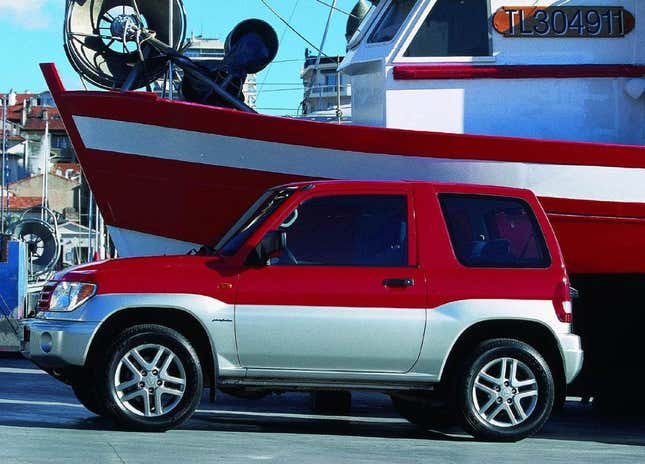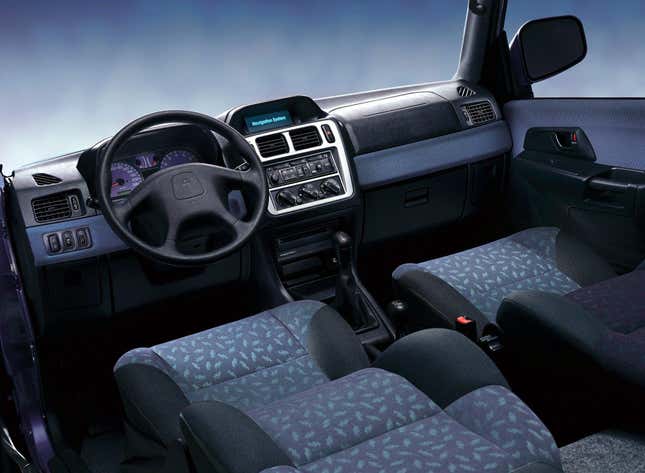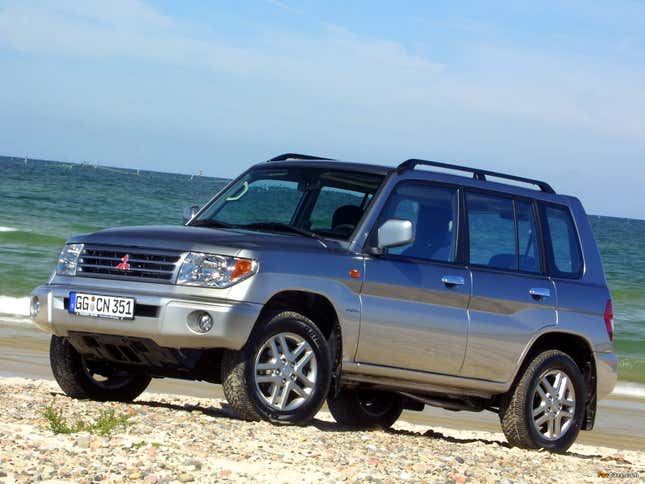About Us
Explain to you how all this mistaken denouncing pleasure and praising pain was born and we will give you a complete account of the system, and expound on the actual teachings.
Mistaken denouncing pleasure and praising pain was born and we will give you a complete account of the system expound.
Contact InfoContact Info
- Chicago 12, Melborne City, USA
- +88 01682648101
- info@themetags.com



Here in the U.S., we tend to lament that Mitsubishi doesn’t really make anything fun or unique for us anymore. The current Outlander and its PHEV version are pretty good and the Mirage is cheap. But for the most part the lineup is forgettable. Mitsubishi has always made pretty cool cars, we just don’t get most of them. Take the cool and tiny Pajero Pinin.
The Toyota Land Cruiser Is Back Baby!
Here in the U.S. we knew the Pajero as the Montero and we only ever received the five door version and the uniquely styled and slightly smaller Montero Sport. Elsewhere in the world the name was used on a whole lineup of mini SUVs, the most unique of which was the Pajero Pinin/Pajero iO.

The Pajero Pinin was Mitsubishi’s answer to compact, off-road focused competitors like the Toyota Land Cruiser SWB and Suzuki Jimny. It all started back in 1996, when Mitsubishi and Pininfarina met to talk about partnering to on a new vehicle. These talks came to a head in 1997 when the two companies entered an agreement. The companies agreed to a seven year, $187.4 million deal that would see Pininfarina design and build the compact SUV for Mitsubishi. Two years later the finished product was unveiled at the 1999 Geneva Motor Show.

While Pininfarina designers were known for pinning some of the most beautiful vehicle designs ever made, they restrained themselves with the Pajero Pinin. The design was distinctly Mitsubishi/Pajero. It essentially looked like a shortened, squashed version of the regular Pajero. And it was small. It had a wheelbase that measured just 89 inches and it was only available in a three door body style initially.

Pininfarina designed the interior as well, but you wouldn’t know by looking at it. It was rough and ready Mitsubishi through and through and its typical 1990s interior was just as plasticky, drab, and boring as you’d expect.
It wasn’t fast either, but that wasn’t much of an issue as this wasn’t a sports car to begin with. Power came from a 1.8-liter 120 horsepower I4 and buyers could pair that engine with a five-speed manual or four-speed automatic transmission. But it could handle its own off-road. The Pajero Pinin was fitted with a version of Mitsubishi’s Super Select four wheel drive system called SS4-i. It was a pretty sophisticated system. A viscous coupling setup, it included a locking center diff and a Torsen limited slip rear diff.

You’d think a vehicle like this would be ideal, especially from an enthusiast stand point, but it wasn’t without faults. For one, its compact size came to be a downside when it went on sale. It had a coupe-like cargo capacity and rear seat room which led to Mitsubishi introducing the five-door version.
It was good off-road, but its four-wheel drive system — while sophisticated — had a 4Low ratio that owners complained was too high at 1.54:1. It also had suspension travel that was too small. The unique design of the front suspension also proved to be a problem for owners who wanted to fit their Pinin’s with bigger tires. The Pinin was fitted with 215/70R16 tires from the factory. These tires were just 0.7 inches below the bottom plate of the McPherson strut. It was so close that some owners even said that you couldn’t even fit snow chains onto the tires if you needed to.
Ultimately, the Pinin sold OK, but under market projections. Just over 64,000 were sold in Italy before it was discontinued in 2005. It sold much better in Japan where 177,132 were sold from 1998-2007. It was eventually replaced by the Outlander and it’s variants. The Pinin was certainly a unique off-roader that was let down by things that should have been solved before it went into production. If you’re interested, these things can be found for dirt cheap now. But we’ll likely never see anything as unique as this in Mitsubishi’s lineup in any part of the world ever again.
